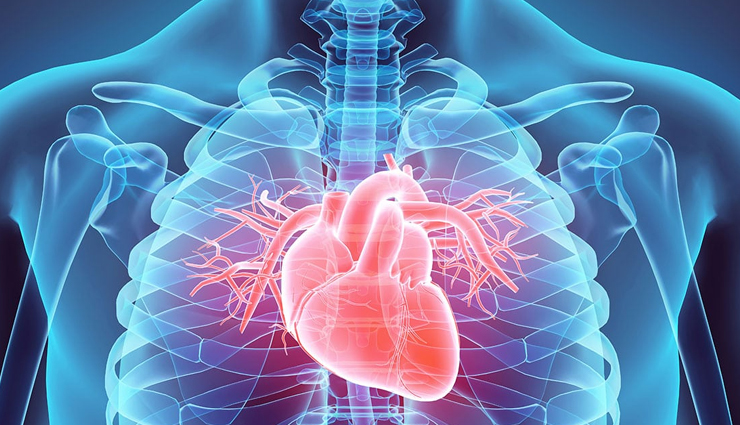- Home›
- Healthy Living›
- 11 Least Known Health Benefits Of Blue Zones Diet
11 Least Known Health Benefits Of Blue Zones Diet
By: Priyanka Maheshwari Sun, 19 Nov 2023 5:48:58

The Blue Zones Diet is a nutritional approach inspired by the lifestyle and dietary habits observed in regions known as Blue Zones—areas with a high concentration of centenarians and a remarkable prevalence of longevity. These regions were identified by National Geographic explorer and author Dan Buettner, who collaborated with researchers and demographers to study communities where people live longer, healthier lives.
The concept of Blue Zones Diet emphasizes not only what people eat but also how they eat and their overall lifestyle. The Blue Zones identified by Buettner include places like Okinawa (Japan), Sardinia (Italy), Nicoya (Costa Rica), Icaria (Greece), and Loma Linda (California, USA). Residents of these areas share common lifestyle factors, such as strong social connections, regular physical activity, and a sense of purpose, in addition to a predominantly plant-based diet.
- Plant-Based Foods: Blue Zones residents typically consume a plant-centric diet rich in fruits, vegetables, legumes, and whole grains. They often incorporate a variety of local, seasonal, and organic foods.
- Moderate Caloric Intake: Blue Zones populations tend to practice moderation when it comes to caloric intake. They eat until they are about 80% full, avoiding overeating.
- Low Meat Consumption: While not strictly vegetarian, the Blue Zones Diet generally includes smaller amounts of meat, with an emphasis on lean sources. Fish is a common protein source in some Blue Zones.
- Social Connections: Beyond dietary choices, the Blue Zones lifestyle places a strong emphasis on social engagement and community. Strong social ties and a sense of belonging are considered integral to overall well-being.
- Regular Physical Activity: Physical activity is woven into the daily routines of Blue Zones inhabitants. Whether it's through walking, gardening, or other forms of natural movement, regular physical activity is a consistent feature.
- Mindful Eating Practices: Blue Zones residents often practice mindful eating, savoring their meals and taking time to enjoy the experience. This may contribute to better digestion and a healthier relationship with food.
It's important to note that the Blue Zones Diet is not a one-size-fits-all approach, and individual dietary needs may vary. However, incorporating the principles of plant-based eating, moderation, and a holistic approach to health inspired by the Blue Zones can potentially contribute to improved well-being and longevity.
# Increased Longevity
The Blue Zones Diet is designed to promote longevity by incorporating a variety of plant-based foods rich in antioxidants, vitamins, and minerals. The emphasis on whole, nutrient-dense foods may contribute to a longer and healthier life.

# Heart Health
The Blue Zones Diet typically includes a high intake of fruits, vegetables, and whole grains, which are associated with heart health. This dietary pattern may contribute to lower blood pressure, reduced cholesterol levels, and a decreased risk of cardiovascular diseases.

# Improved Weight Management
The Blue Zones Diet encourages mindful eating and moderation, which can contribute to healthy weight management. The emphasis on plant-based foods and limited consumption of processed and high-calorie foods may support weight loss and maintenance.

# Reduced Risk of Chronic Diseases
The Blue Zones Diet, with its focus on plant-based foods and lean protein sources, is associated with a lower risk of chronic diseases such as type 2 diabetes, certain cancers, and neurodegenerative conditions.

# Enhanced Digestive Health
The diet's emphasis on fiber-rich foods, including fruits, vegetables, and whole grains, supports digestive health. Adequate fiber intake promotes regular bowel movements and a healthy gut microbiome.

# Improved Cognitive Function
The Blue Zones Diet, rich in antioxidants and anti-inflammatory foods, may contribute to better cognitive function and a reduced risk of age-related cognitive decline.
# Balanced Nutrition
The Blue Zones Diet encourages a diverse and balanced intake of nutrients from various food sources. This can help ensure that individuals receive the necessary vitamins, minerals, and other essential nutrients for optimal health.

# Better Blood Sugar Control
The diet's focus on whole, unprocessed foods and limited consumption of refined sugars may contribute to better blood sugar control, reducing the risk of insulin resistance and type 2 diabetes.

# Positive Impact on Mental Health
Beyond diet, the Blue Zones lifestyle includes factors such as strong social connections, regular physical activity, and a sense of purpose—all of which are associated with improved mental well-being.
# Increased Energy Levels
Consuming a variety of nutrient-dense foods, as encouraged by the Blue Zones Diet, provides a steady source of energy. This can help individuals maintain consistent energy levels throughout the day.
# Social Support and Well-being
The Blue Zones Diet is part of a broader lifestyle that values social connections and community. Strong social ties are associated with improved mental and emotional well-being.





